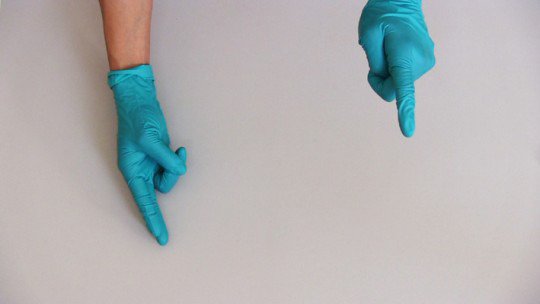The Place from Where We Look
dal 22/6/2015 al 24/6/2015
Segnalato da
Kapwani Kiwanga
Yu Ji
Antonia Alampi
Jens Maier Rothe
Sarah Rifky
Lotte Arndt
Nina Huber
Julia Morandeira Arrizabalaga
Victor Wang
Marianna Hovhannisyan
Simon Soon
Yesomi Umolu
Natalia Zuluaga
22/6/2015
The Place from Where We Look
Kadist Art Foundation, Paris
Seminar. This three-day work session will engage with reflections on collecting strategies, the re-writing of art history-ies and the reconfiguration of artistic practices in the global age.

The Place from Where We Look[ is the last chapter of Collecting Matters, a collaborative fellowship initiated by Kadist Art Foundation (Paris) with Nomas Foundation (Rome) and David Roberts Art Foundation (London) that marks a collective commitment to encourage new ways of thinking, sharing and producing knowledge about collections.
From June 23rd to 25th 2015 at Kadist Art Foundation in Paris, this three-day work session will engage with reflections on collecting strategies, the re-writing of art history-ies and the reconfiguration of artistic practices in the global age. It will gather a core group of twenty participants, including six fellows - international young professionals, artists, curators or art researchers selected following an open call - guest speakers and others participants invited to join the group. The seminar will be punctuated by public events.
In the recent years, it has been noticeable that institutions are addressing the issue of globalization in the art field by developing their own responses through seminars, regional prospection or changes in their collecting strategies. Art fairs also encourage collectors to purchase works from everywhere, organizing talks to identify actors of these new scenes.
But if “the place from where we look” is contextualized, conditioned by the social, ideological and cultural structures of a given society, how do we look at an artwork in a globalized context? In what ways could a collection embed multiple perspectives from which to look at? How may a collection of contemporary art be used to investigate and trigger new knowledge on such questions?
The act of collecting, considered as a construction of histories, should allow to emphasize how histories from different places and epochs are connected.
What we want to discuss here is how the global system influences the production of works and the expectations they generate, the circulation of people and the displacement of knowledge. In order to avoid the concentration of value in certain regions, balanced strategies based on collaboration still have to be invented.
Pragmatic questions, arising from the experiences of the participants, institutions or collectors observing the evolution of the art scene, are to be addressed within a theoretical framework taking into account postcolonial studies.
Speakers:
Beirut with Antonia Alampi, Jens Maier-Rothe and Sarah Rifky, an art initiative founded in Cairo on May 1, 2012.
Marie-laure Allain Bonilla, a researcher holding a PhD on the uses of postcolonial theories within contemporary art curatorial practices since the 1980’s.
Lotte Arndt, a critic and researcher holding a PhD on Postcolonial negotiations in Paris based on cultural magazines referring to Africa.
Nina Huber, a curator based in Frankfurt, Germany. She works at the Weltkulturen Museum in Frankfurt assisting its Director, Dr. Clémentine Deliss.
Kapwani Kiwanga, an artist and filmmaker whose works confuse truth and fiction in order to unsettle hegemonic narratives and create spaces in which marginal discourse can flourish.
Julia Morandeira Arrizabalaga, an independent curator and researcher based in Spain, member of the research groups Peninsula and Declinación Magnetica.
Victor Wang, an independent curator and researcher, associated to CAHF.
Fellows:
Marianna Hovhannisyan (Armenia), researcher and curator, currently based in Istanbul (Turkey).
Yu Ji (China), artist and co-founder of am art space in Shanghai (China).
Moses Serubiri (Uganda), art writer, researcher and curator, currently based in Kampala (Uganda).
Simon Soon (Malaysia), researcher and curator, currently based in Sidney (Australia).
Yesomi Umolu (Nigeria/UK), curator and writer based in Michigan (USA), curator at the Eli and Edythe Broad Art Museum.
Natalia Zuluaga(Colombia, US) curator, currently based in New York (USA) finishing her MA at Bard College.
Antonia Alampi, Jens Maier-Rothe and Sarah Rifky will walk us through Beirut in Cairo (2012-2015), from fictional entities as artworks, to how we imagine schools and institutions in Cairo. The talk will involve A Guest Without A Host is A Ghost. Collection in Residence: a long-term loan (May 2014 to January 2015) of selected works from the Kadist collection.
Beirut is an art initiative that considers institution building a curatorial act. It was founded in Cairo on May 1, 2012. In the period of 2012–2015 Beirut presented a year-round public program of exhibitions, events, research and educational activities at its residential premise - a 1940’s villa surrounded by a disheveled garden - in Agouza, Giza. Amongst Beirut's exhibition collaborations is ‘'A Guest Without a Host is a Ghost’ (2014–2015) with the Kadist Art Foundation in Paris.
http://beirutbeirut.org/en/
Thursday, June 25th, 7pm
A Conservator’s Tale – a performance by Kapwani Kiwanga
In A Conservator’s Tale, Kiwanga assumes the role of a conservator in charge of very specific and subjective archives. She makes silent objects speak, embodies forgotten accounts and tells fantastical stories. Unusual anecdotes, unspoken facts and mythical beasts all have their place in the stories told by Kiwanga. By combining readings, sound and video extracts, the artist explores the status of the document, but also the possibilities of oral transmission.
Kapwani Kiwanga is an artist and filmmaker. Her work explores the intimacies of the human condition in relation to historical, social and political forces. Kapwani Kiwanga’s projects often manifest as video and sound installations as well as performances. She intentionally confuses truth and fiction in order to unsettle hegemonic narratives and create spaces in which marginal discourse can flourish
Image: Kapwani Kiwanga, Forms of absence, video, film still, 2014
Contact:
Elodie Royer 01 42518349 elodie.royer@kadist.org
Opening: Tuesday, June 23rd, 7pm – A talk by Beirut
Kadist Art Foundation
19 bis - 21 rue des Trois Freres
Thu - Sun 2pm to 7pm



